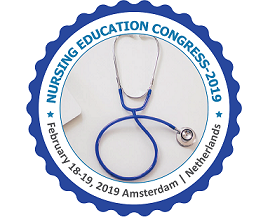
Joselyne Mukantwari & Dr. Lilian Omondi
University of Rwanda, College of Medecine and Health Sciences, School of Nursing and Midwifery
Title: perioperative nursing training inrwanda: the journey so far
Biography
Biography: Joselyne Mukantwari & Dr. Lilian Omondi
Abstract
A nurse within a surgical team, plays a fundamental role in contributing to the success of the surgery undertaken and in the patient's recuperation. In order for nurses to carry out this role effectively, they need specific training that has been planned and adapted to new circumstances that parallel the growth of nursing, anesthesia and surgery professions as a whole. The aim of this article is to share the journey of perioperative nursing training in Rwanda and associated challenges.
Method: This is narrative of an in-country accredited training process by a team of international expatriates initiated by the Government of Rwanda, Ministry of Health through Human Resources for Health (HRH) Program (2012-2019) and a consortium of USA Universities.The due process of curricula development by a diverse team of international and local experts was undertaken and domesticated. The University of Rwanda, School of Nursing and Midwifery started formal Masters of Sciences in Nursing Training for Rwandans in eight nursing specialities to include perioperative nursing in October 5th 2015.
Results: The training was successful and the first cohort of thirteen perioperative nurse graduates were trained between2015-2017. Five graduates of the program have since been deployed as academic members of staff at the University, while the remaining graduates are working in the university teaching hospitals, the practicum of the university. The second cohort (2017-2019) of seven students is on course.
Conclusion: The goal of the program of strengthening the capacity of academic institutions in Rwanda besides capacity building of a large, diverse, and competent health workforce has been achieved to some extent.Although the training is expected to expand over time, financial cost to sustain training and expertise mentorship poise challenges.

